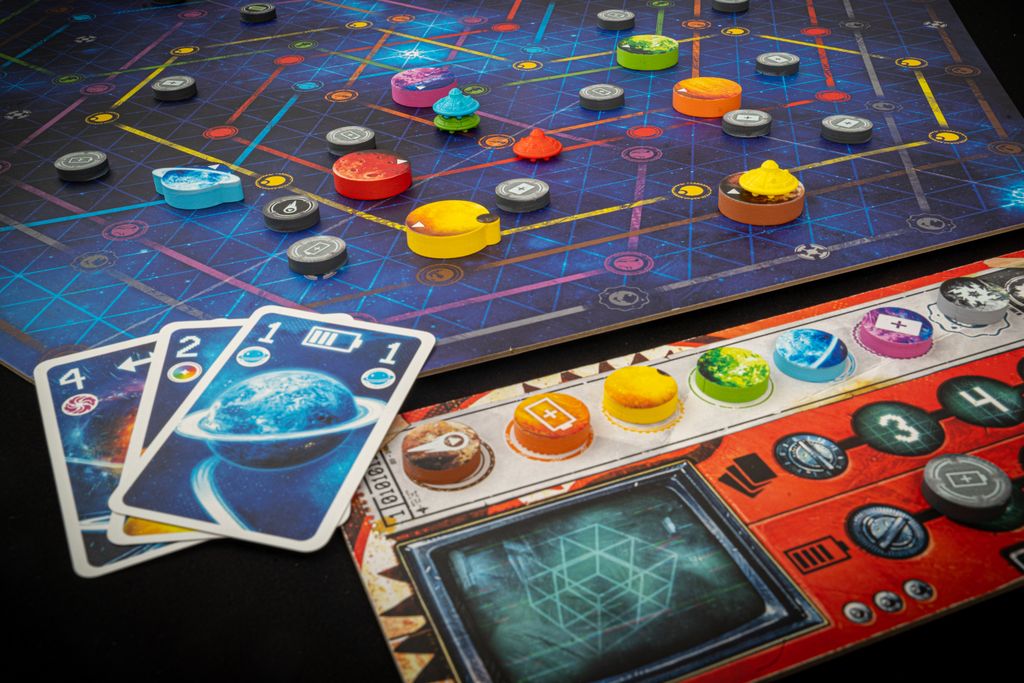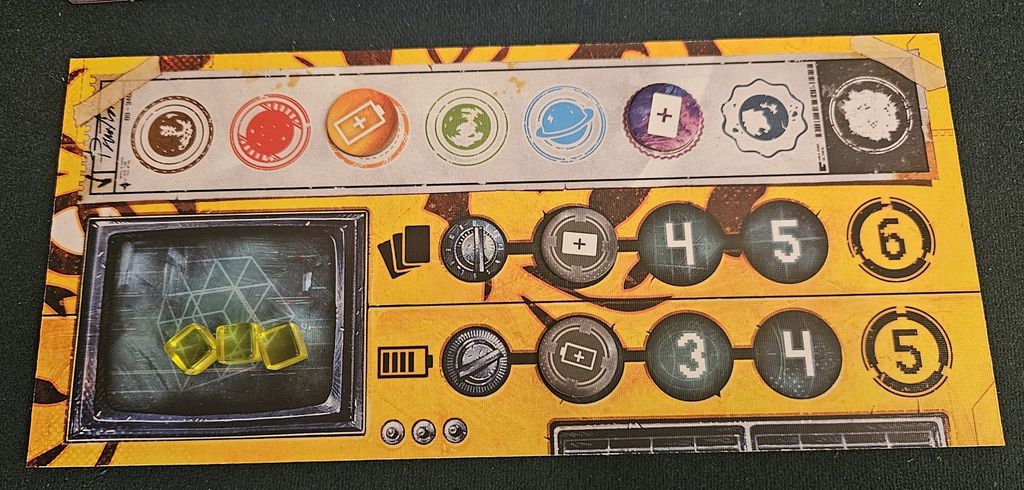If you ever wanted to feel like a cosmic mastermind but keep your feet firmly planted at the kitchen table, you’re in the right place. This is my review of Orbit, the game that promises planets, peril, and plenty of laughs. I’ve played it (repeatedly!) with a bunch of friends—some smart, some lucky, and at least one who thought Saturn was a cheese. Ready to find out if this game rockets or crashes? Let’s get going!
How It Plays
Setting up
Spread out the Orbit board in the middle of the table. Everyone grabs a spaceship pawn and matching tokens. Deal out the cards and place the resource tokens in easy reach. Pick a starting player—oldest, youngest, or whoever makes the best rocket sound.
Gameplay
On your turn, roll the dice and move your ship around the orbital track. Pick up resources, dodge hazards, and try not to land on a wormhole unless you crave chaos. Everyone gets to use action cards to mess with each other. Some cards help you, others just ruin your friend’s entire plan (sorry, Becky!).
Winning the game
You win by being the first player to collect all your resources and land safely on the home planet. But be careful—random events and sneaky friends can send you off course at the last second. Victory means you navigated the galaxy—and the shenanigans—better than the rest.
Want to know more? Read our extensive strategy guide for Orbit.
How Play Happens in Orbit: A Look at Turns and Tempos
Let me tell you, the first playthrough of Orbit in my living room was almost as chaotic as my attempt at baking sourdough. There are a lot of moving parts, but once you get the hang of the turn flow, things speed up faster than my cousin grabbing the last slice of pizza. So, here’s how the gameplay rolls out, step by step, because you know I wouldn’t leave you stranded among cardboard planets and resource tokens.
Every player in Orbit gets their own board, some shiny meeples (I named mine), and a hand of cards. The game goes in rounds, and in each round, every person takes a turn doing their thing. First, you’ll play an action card, and then do what it says — stuff like launching a satellite, moving around the board, or grabbing resources. You don’t have to wait forever, either: turns are pretty snappy, often lasting under a minute unless it’s your uncle Gary, who always needs to consult the rulebook twice.
Orbit’s structure is tight: after actions, you resolve events that can mess things up—asteroid showers, rogue planets, the usual Tuesday stuff. There’s a real sense of pace. No one sits bored for long, and there’s just enough planning to keep schemers happy but not so much analysis paralysis that everyone starts scrolling on their phones. My favorite part? The moment you think you’ve planned the perfect turn and then someone else’s move knocks your grand plans into a black hole. That’s a bit annoying, but mostly hilarious.
Stick around, because next we’ll see if Orbit’s choices are fair and square, or if you’ll need a rabbit’s foot to win — I’ve got thoughts.
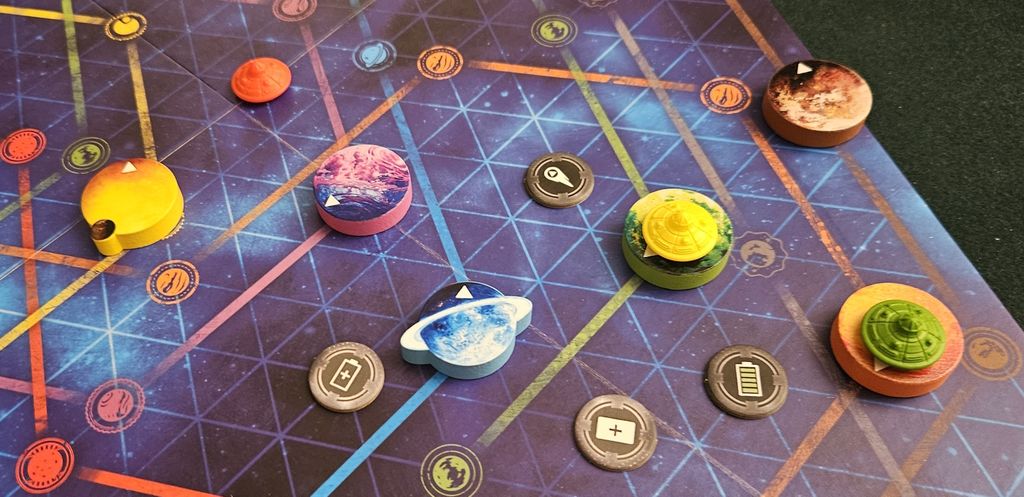
Skill vs. Luck: Who’s Really in Control in Orbit?
Alright, let’s talk about the eternal struggle: brains versus blind chance. When my crew first cracked open Orbit, we had one burning question—would our best plans win out, or would Lady Luck crash the party? I’ve had board games where my cousin Steve won just by sneezing at the dice. Would Orbit be another wild ride on the luck rollercoaster, or would it reward my laser-sharp tactics?
The answer: Orbit finds a spot somewhere in the middle! There’s definitely room for smart moves. Timing your actions just right, planning your moves ahead, and watching what other players do… these all matter. I saw my friend Jill pull off a neat combo by keeping an eye on my board while tricking us into thinking she’d take a different route. That kind of galaxy brain play can lead to some sweet victories.
Buuuut—let’s not pretend Orbit is chess. There are random elements mixed in. The event cards you draw? Sometimes they feel like cosmic slapstick. One card made me lose a turn because “space pirates” stole my fuel. (Not making that up. It was so rude, but also kinda hilarious.) If you only like games where every move is under your control, Orbit might make you twitch a bit.
Still, I found the luck doesn’t totally take over. It keeps things lively and makes every session feel different. Skill can shine, but you’ll still have those moments where you shake your fist at the universe. If you like surprises, you’ll love it.
Next up, let’s see if Orbit’s components are out of this world or just leftover meteor dust!
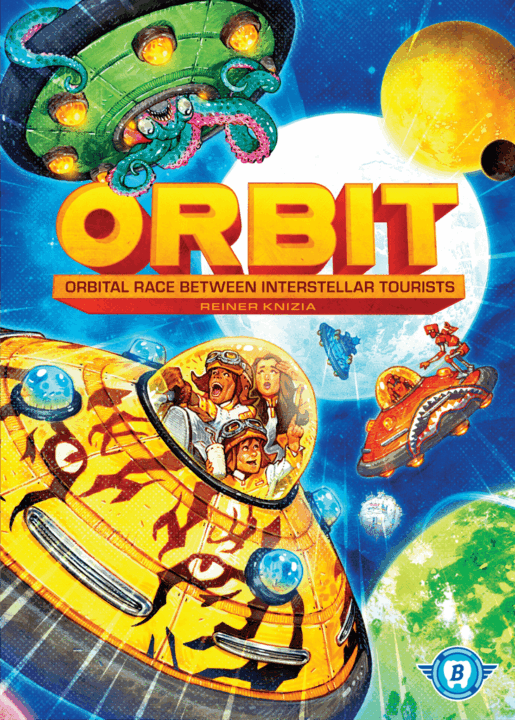
Orbit’s Components and Artwork: A Feast for Your Eyes and Fingers
I won’t lie, the first thing I noticed about Orbit was the box art. It’s bright, it’s colorful, and it looks like someone spilled a science fiction rainbow all over the table. My friend Rob actually picked it up just to spin it around and say, “Shiny!” Yup, we are easily distracted.
The pieces inside keep up the good looks. The planets are chunky wooden discs, which my cat immediately tried to knock off the table. If you ever lose a planet under your sofa, blame the cat. The orbit rings are thick cardboard—none of that flimsy bendy stuff that gives you flashbacks to cheap pizza boxes. Everything fits nicely on the board, and the little spaceship meeples are just plain adorable. My group thought they looked like tiny space potatoes and they have now been named the Spuddies. There’s nothing wrong with potatoes in space, right?
The print quality is crisp. No faded ink or weird color splotches in sight. Even after a couple of drinks (shhh, don’t tell my mom), none of us mixed up the planets. The symbols on the cards are clear and the text is readable for everyone. My buddy Dan, who can’t see a thing without his glasses, gave that a thumbs-up.
Overall, Orbit really nails the look and feel department. You get a table presence that makes people want to stop and stare, and the components don’t fall apart after one rowdy session. Next up: does Orbit keep things fresh if you change the crew, or does it crash and burn? Let’s find out together!
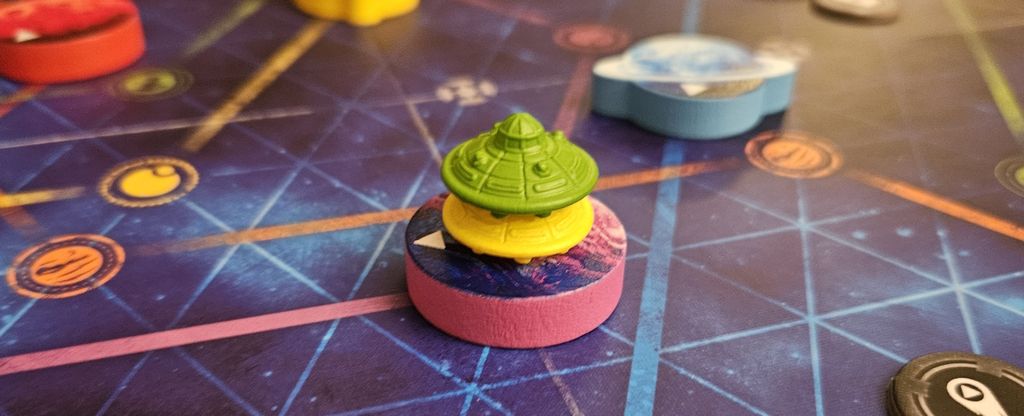
Orbit’s Replay Value: Fun in Every Galaxy (Group!)
I’ve played Orbit with my usual crew, my family, and even some people who think Monopoly is the height of strategy. Here’s the shocker: Fun happened every time. Orbit has this weird magic where each group brings out something new in the game. My strategy friends cooked up plans like they were prepping for a moon launch. My family, on the other hand, giggled and tried to sabotage each other (all in good fun, I promise!).
What gives Orbit its replay punch is the simple turn structure and the way table talk stirs things up. Every time we played, someone discovered a sneaky tactic, or made a move no one saw coming. There’s enough room for everyone to feel clever, but not so much that new players feel lost in space. Plus, game length is just right—maybe 30-40 minutes—which means you can squeeze in a rematch while someone fetches more snacks. The only thing I noticed is if you play too many times in a row with the exact same group, some predictable moves start to pop up. But hey, just invite a wildcard friend, and boom—you’re back in orbit!
For me, Orbit is a winner for groups of all sorts. If you’re looking for a game that keeps people engaged and laughing, no matter who’s at the table, I absolutely recommend it. Just make sure you watch out for that one cousin who always tries to break the rules…
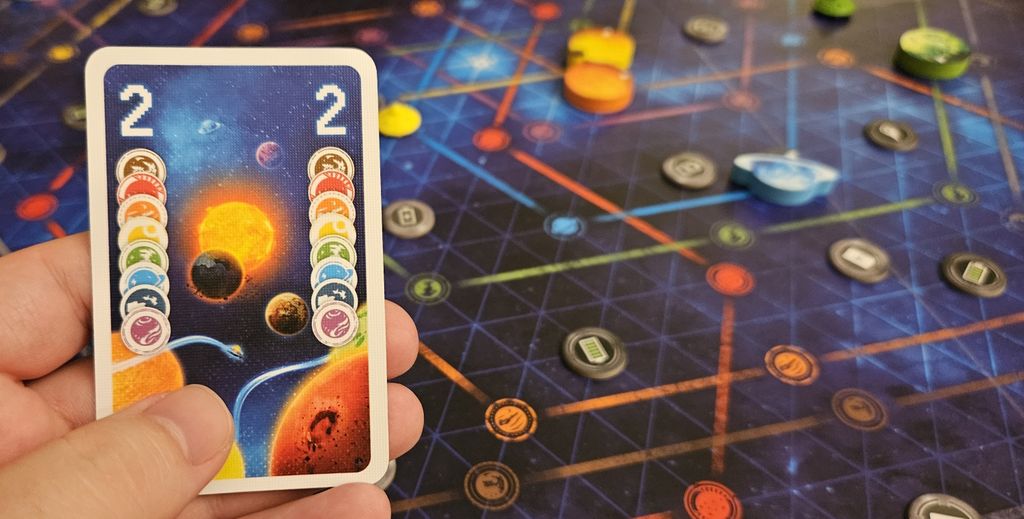
Conclusion
Orbit shot around my game table more times than I expected. It’s got quick turns, bright art, and clever moves, but there’s just enough random chaos to keep things spicy (and make me yell at plastic tokens in front of my friends). While luck sometimes pushes harder than I’d like, the game still checks most of the fun boxes, and it really shines with groups who don’t mind a few surprises. Orbit won’t launch you into a new galaxy of gaming, but for a lively, replayable night with friends, it lands safely on the good side. That wraps up my review, space fans—see you in the next orbit!

